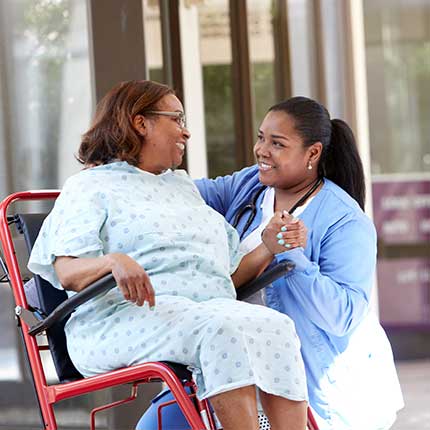Healthy Living
Common Sleep Disorders
More than one-third of adults in the United States suffer from sleep disorders, getting fewer than seven hours of sleep in a day. When left untreated, sleep deprivation can lead to several health complications, such as high blood pressure, cardiovascular disease, diabetes, depression and obesity.
The recommended amount of sleep varies slightly from person to person. Babies need as much as 16 to 18 hours per day while school-age children and teens require an average of nine and a half hours of sleep per night. For most adults, seven to nine hours of sleep per night is the ideal amount.
National Institute of Neurological Disorders and Stroke
MedlinePlus
Healthline
What Does Sleep Do for You?
Sleep plays an important role in the way the brain functions. Quality sleep enables the brain to store new information, get rid of toxic waste and allows nerve cells to reorganize and communicate with each other. It also helps the body repair cells, restore energy and release molecules like hormones and protein.The recommended amount of sleep varies slightly from person to person. Babies need as much as 16 to 18 hours per day while school-age children and teens require an average of nine and a half hours of sleep per night. For most adults, seven to nine hours of sleep per night is the ideal amount.
Types of Sleep Disorders, Causes and Symptoms
1. Insomnia
This is the inability to fall asleep or remain asleep. It is the most common sleep disorder that affects about 30 to 35% of adults. Insomnia is often associated with other conditions, such as stress, depression, pain, pregnancy or menopause. Some medications, including certain asthma, cold and allergy medicines, as well as medications for attention deficit hyperactivity disorder (ADHD), high blood pressure or Parkinson’s disease, may cause insomnia. Insomnia may be classified as chronic, intermittent or transient.2. Sleep apnea
This is a serious medical condition characterized by pauses in breathing during sleep for 10 seconds or more. Sleep apnea can be classified as obstructive sleep apnea when the upper airway becomes blocked repeatedly during sleep, reducing or completely stopping airflow or central sleep apnea when the brain does not send the signals needed to breathe.3. Restless leg syndrome
This is the powerful urge to move the legs at night combined with a tingling or prickly sensation often associated with ADHD and Parkinson's disease.4. Hypersomnia
This is characterized by the inability to stay awake during the day. It includes narcolepsy, a medical condition that causes "sleep attacks" or extreme daytime sleepiness. Hypersomnia is caused by problems in the brain systems that control sleep and waking functions. Drug and alcohol abuse may also trigger this condition.5. Parasomnia
This is a class of sleep disorders that cause unusual behaviors, such as sleepwalking, sleep talking, groaning, nightmares, bedwetting, teeth grinding or jaw clenching. Other less common behaviors include sleep texting, sexsomnia, exploding head syndrome, sleep-related hallucinations, sleep-related scratching and driving while asleep. Parasomnia may be triggered by stress, anxiety, depression, post-traumatic stress disorder (PTSD), substance abuse, certain medications, irregular sleep schedules or neurological conditions like Parkinson's disease.Diagnosis and Treatment
Sleep disorders are diagnosed through a physical exam, medical history and sleep history. Various tests and studies may be performed to record a patient's data during sleep. This data includes brain wave changes, eye movements, breathing rate, blood pressure, heart rate and electrical activity of the heart and other muscles. Treatment for sleep disorders depends on the severity of the condition, but it may include a combination of medical treatments and lifestyle changes.Ways to Get a Good Night’s Sleep
- Go to bed and get up at the same time every day, including weekends.
- Create a bedtime ritual that helps you relax, such as reading or a hot bath.
- Avoid electronics at bedtime because the light from the screens may be disruptive to sleep.
- Try to exercise 20 to 30 minutes each day but not within several hours of bedtime.
- Don’t eat a large meal before going to bed, and avoid caffeine, alcohol, tobacco or medications that can disrupt sleep.
- Make sure the room temperature is comfortable, and the bedroom is dark and quiet.
- Avoid taking naps in the late afternoon.
- Get up and do something quiet if you cannot fall asleep, and go back to bed when you’re tired again.
Discover more about your personal sleep quality.
Sources:
National Institute of Neurological Disorders and Stroke
MedlinePlus
Healthline
Sign Up for Health Tips
Get our advice and upcoming events about weight, pain, heart and more.
Take a Health Risk Assessment
Our health assessments can help you identify issues and areas to discuss with your doctor.



